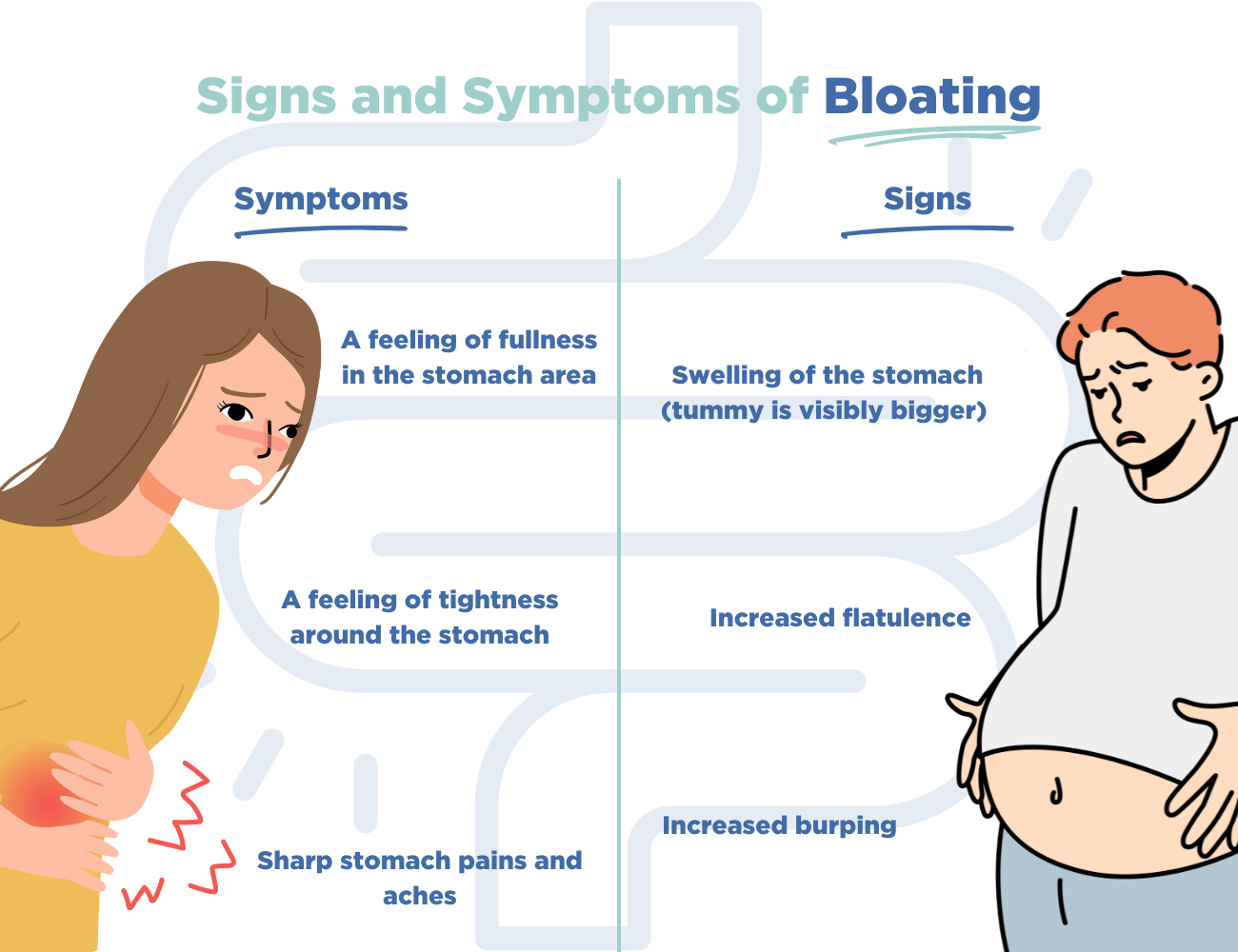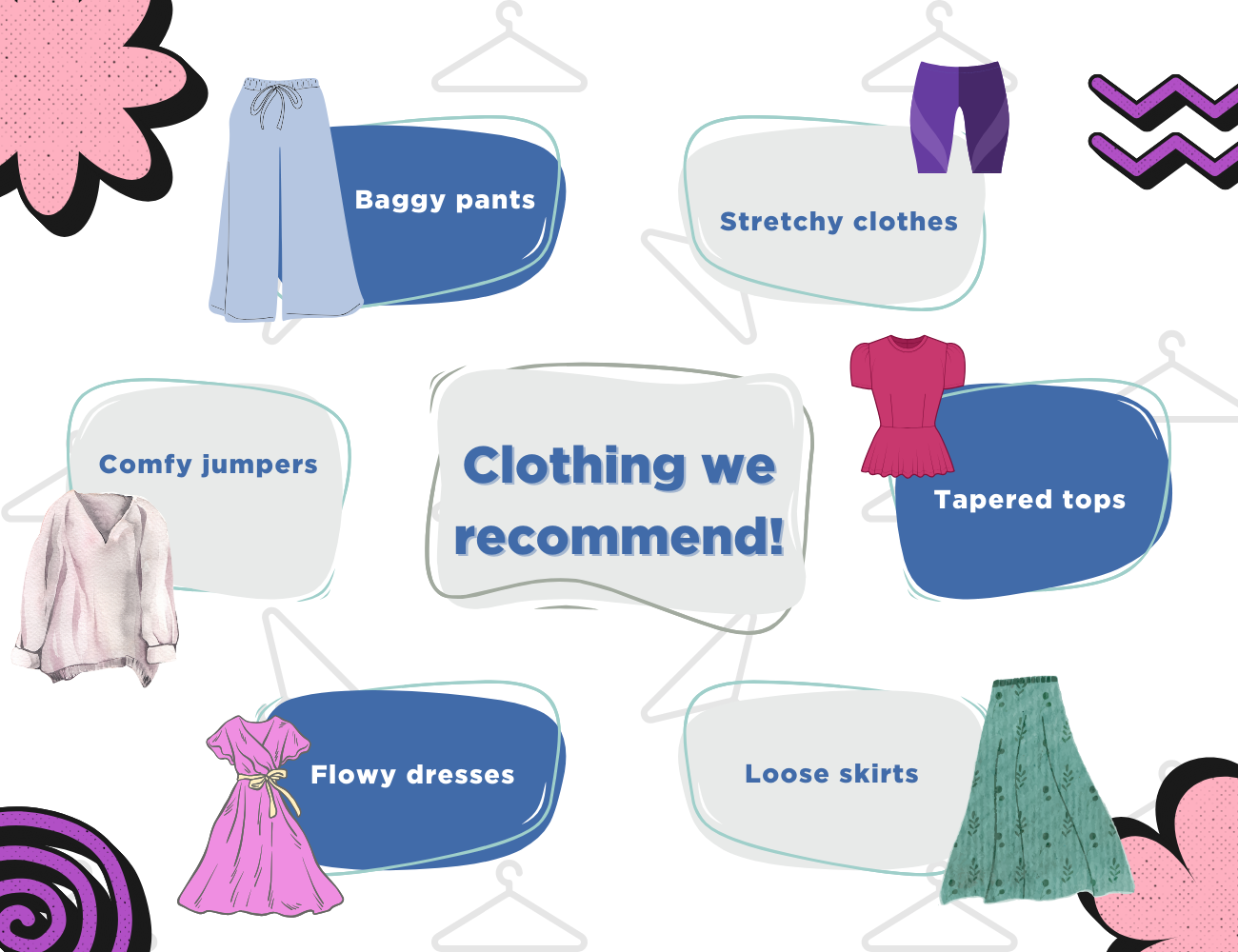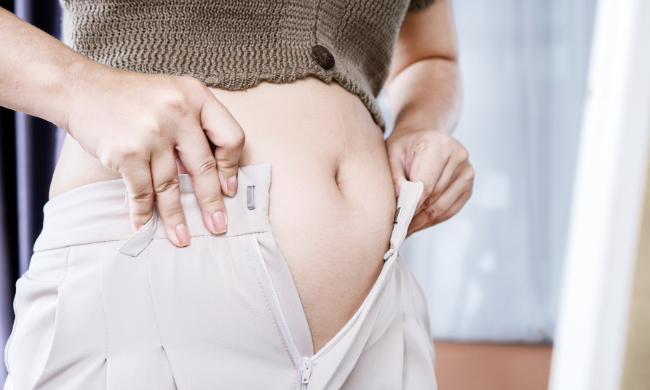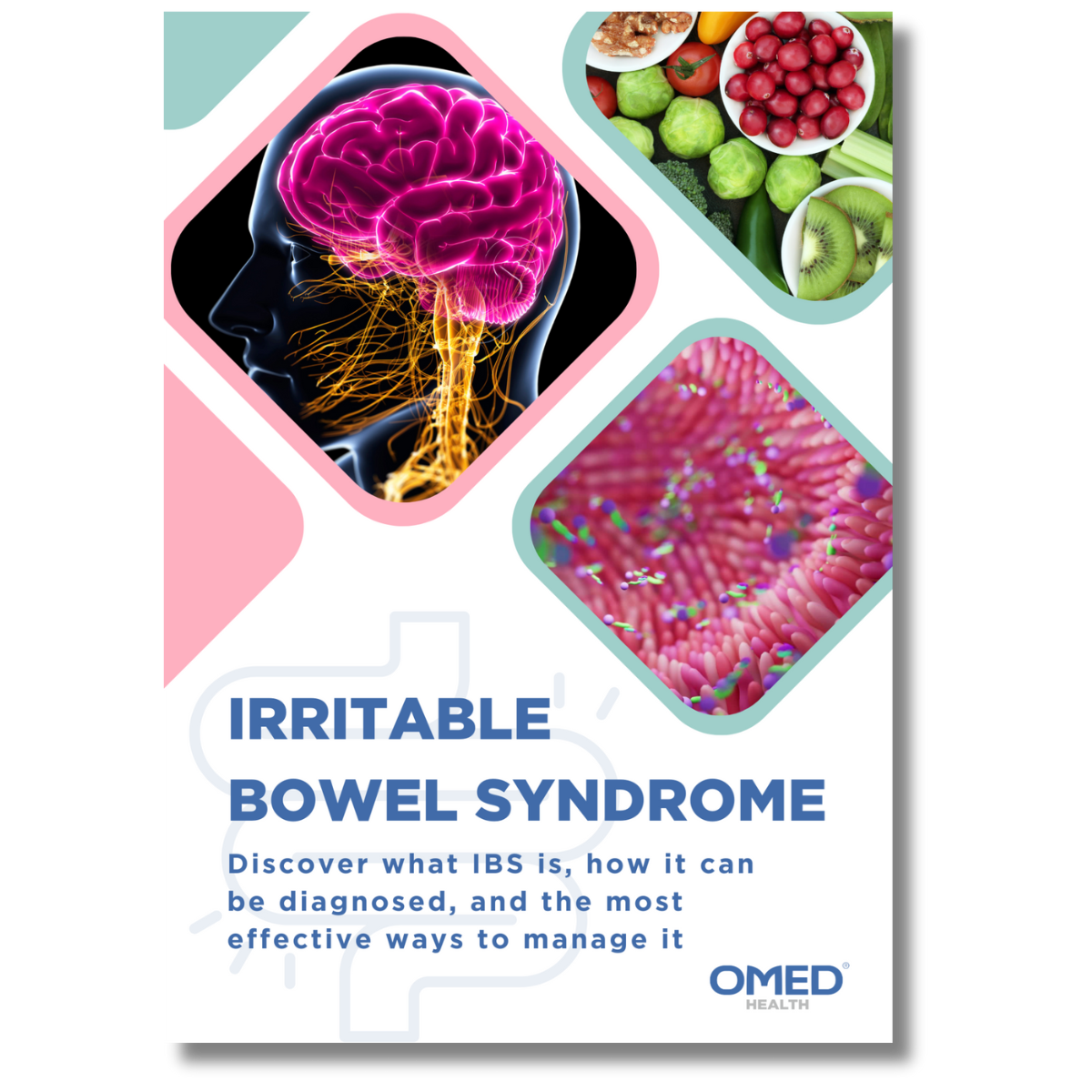How often do you find yourself or your friends complaining about feeling bloated? Sometimes when we have consumed too much food, we can feel bloated. However, for many people, bloating can indicate an underlying gut condition. If you feel bloated often, you may be suffering from a condition such as irritable bowel syndrome (IBS) and/or small intestinal bacterial overgrowth (SIBO).
Bloating is where your tummy expands and leaves you feeling full and uncomfortable. This is thought to occur, at least in part, due to excess gas produced by the microbes living in the gut, known as the gut microbiome. Some patients with IBS often suffer from constipation, which can also contribute to bloating.

The clothes that you wear can make this feeling of bloating unbearable. Imagine wearing tight clothes whilst having a bloated stomach – ouch! Often undoing the top button on your pants seems like the only way to relieve discomfort. However, there are many more tips and tricks that you can incorporate into your daily wear to make sure your tight clothing isn’t making you feel even worse.
Here are some of OMED Health’s top tips on how to feel as comfortable as possible, while still wearing what you want.
Look for clothes that are made of elastic materials that expand easily
Tight clothes are not only uncomfortable when you are bloated but could cause bloating in the first place. This is because intense pressure on the stomach can restrict the movement of gas throughout the digestive system. This gas can then build up, leading to abdominal pain and bloating.
This doesn’t mean you have to wear loose sweatpants everywhere you go. Wearing clothes made of materials that naturally expand, such as spandex (also known as lycra and elastane) can allow your stomach to bloat and stretch the material without much resistance.
However, be aware that certain active clothes like running pants may seem stretchy, however, they are more firm and less expandable. This can put pressure on your stomach, particularly if worn for a long time. Therefore, tight clothing and IBS are a no-go!
Wear clothes with looser fitting regions around your stomach
Bloating can cause an embarrassing increase in the size of the stomach that may make you self-conscious. Although bloating is very common and should be nothing to be ashamed of, subtly covering any bloating with your clothes may help you relax and let the bloating pass without causing extra pain and embarrassment.
Floaty, loose-fitting tops are good things to have in your wardrobe. But you do not have to lose your shape! Some shirts and tops are more fitting at the top before tapering naturally outwards towards the bottom, therefore accommodating any extra expansion of your tummy whilst still ensuring you look how you want to.
As a general wardrobe rule, your clothes should not leave marks on your skin, especially around your stomach. This is a big sign that your clothes are too tight. Tight clothing and IBS are not a good mix – you may find your symptoms will worsen.
Avoid clothes that are difficult to get out of
Most people with IBS experience relief after a bowel movement, and many experience increased urgency. When you need to go, you need to go! In these scenarios, avoid clothes that you are going to struggle to get out of, for example, complex buttons, fasteners, jumpsuits, etc. Clothes like flowy dresses, loose-fitting pants, and leggings can be the key to comfort when suffering from a gut condition.

Understand your IBS triggers and learn how to manage them
It might sound obvious, but understanding what factors can trigger your IBS symptoms is a very difficult task. Working alongside your healthcare professionals to identify whether certain foods or lifestyle factors (such as stress, exercise, and sleep) are contributing to your IBS flare-ups can help you plan your day and outfits accordingly. For example:
- Stress – many people find that stress is a major cause of their IBS symptoms. This is thought to be due to the close relationship between our minds and our gut, known as the gut-brain axis. Picture this: you have a big presentation that you must give at work, and it is making you feel worried and stressed. To remove the worry of an IBS flare-up and bloating from the stress, make sure you wear stretchable or loose-fitting clothes around your tummy, and have any other remedies to hand that you know can relieve your symptoms.
- Food –certain foods like FODMAPs can be major causes of your IBS symptoms. You have a friend’s birthday dinner coming up, and it is making you feel worried that you may consume food that you know triggers you, despite taking precautions. To remove the worry of bloating ruining your evening, wearing a loose-fitting dress or skirt can provide your stomach room to bloat without feeling too uncomfortable. Consider bringing along your own food, or suggest that everyone brings a dish of their own!
Monitor your symptoms using the OMED Health Breath Analyzer
Our OMED Health Breath Analyzer and App can help you monitor the levels of gases in your breath. As mentioned previously in this blog, the gut microbiome can overproduce gases that can cause excess bloating – including gases like hydrogen and methane. Our device measures these gases alongside lifestyle factors that could be playing a role in your discomfort. This data can be used to help you make a clear plan to help manage your symptoms. You can join the waitlist for the device here.




